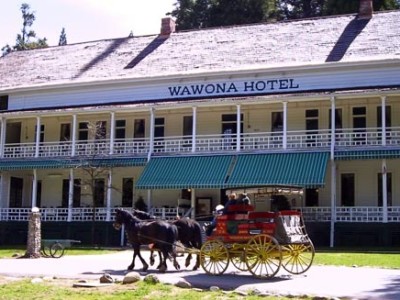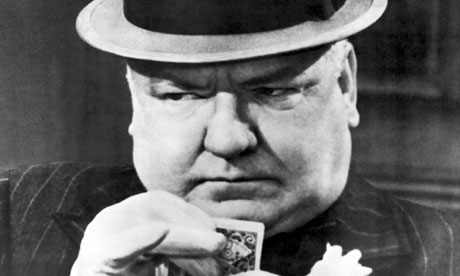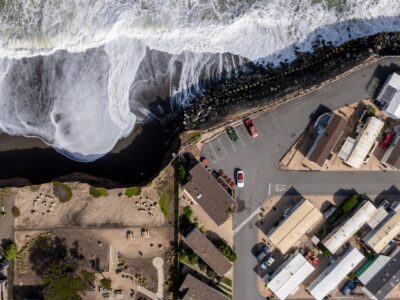Goodbye, Wawona?
Trademark Dispute Threatening Iconic Yosemite Names Could All Be A Big Poker Game

It’s great doing environmental law in no small part because it is interdisciplinary: not only do environmental lawyers and scholars have their own field, but they engage with scientists and engineers, as well as specialists in other legal areas (such as constitutional or tort law).
Still, I had never seen an environmental trademark controversy. Until now:
Historic hotels and other beloved landmarks at Yosemite National Park will soon undergo a name change in a multi-million dollar tussle over who owns rights to the original names.
The Ahwahnee, a luxurious stone and timber hotel with stunning views of the park’s fabled granite peaks, will be called the Majestic Yosemite Hotel. Curry Village, a woodsy family-friendly lodging complex, will be recast as Half Dome Village…..
The new names at Yosemite are the latest twist in the dispute with Delaware North, the company that recently lost a $2 billion bid — the National Park Services largest single contract — to run the park’s hotels, restaurants and outdoor activities that draw visitors from around the world.
Delaware North demands to be paid $51 million for the names and other intellectual property. The New York-based firm filed a lawsuit last year, saying that when it won the contract in 1993, the park service required the company to buy the former concessionaire’s assets.
It’s not as ridiculous as it sounds. If Delaware North actually did have to buy the former concessionaire’s assets, then it stands to reason that intellectual property would be part of that.
But hang on a minute.
1) It isn’t clear that names like “Wawona” or “Badger Pass” actually can be trademarked to begin with. I am no trademark expert, but at some point names enter the public domain. You can’t type up “Moby Dick,” and then copyright it. In the same way, people have been calling the luxury hotel in the Yosemite Valley “the Ahwanee” since it opened in the 1920’s: ditto with Badger Pass. Delaware North couldn’t just go ahead like some modern-day Cortes, stick a flag in the ground, and declare it their trademark. As my friend and former student Michelle Nicole Black commented, “can the State of Delaware sue Delaware North for trademark infringement?” It actually poses an intriguing legal and philosophical question about the privatization of public property, and it is far from clear that Delaware North is right on this. Trademark law is both federal and state, but if the company got the Patent and Trademark Office to sign off on this, I’d be surprised (although stranger things have happened). Since state marks don’t requite registration, that means it is just a matter of common law; we don’t really know whether these marks actually exist until a court says so. And no court has said so.
2) Even assuming that they can trademark these names, unless the Park Service is guilty of gross legal malpractice, it would not require Delaware North to buy the assets: it would require the company to lease them for the duration of the contract. Otherwise, the contract would be of unlimited duration, which it clearly is not.
These are pretty big issues to deal with before anyone replaces my beloved Wawona Hotel with something called the “Big Trees Inn,” or whatever they want to name it. So what is going on?

I can’t help but think that this is all a big poker game. Delaware North wants $51 million for the trademarks. The new concessionaire, Aramark, has offered $2 million. So one can imagine the “conversation” between the lawyers:
Delaware North: Nice little park you’ve got here. Too bad if something were to happen to it. You wouldn’t want to operate a park with intellectual property you don’t have the rights to, would you? That would allow someone — say, us — to get an injunction against you and shut the place down just as the high season is starting.
Aramark (and the National Park Service): Oh yeah? Well, you can cease your little cranial-rectal fusion. We’ll just rename the damn buildings. And by the way, in a few months no one will care what they are called, just as no one cares about Comiskey Park, or Shea Stadium, or whatever. And then your precious trademarks will be worth nothing.
It’s not a surprise that spokespeople for the Park Service and the new concessionaire are making noises about this being temporary.
Lots of times property disputes like this can’t get resolved because of bilateral monopolies: both sides just try to wait out the other, knowing that the other has nowhere to go. More frequently, it is because of non-monetizable values. In a property case I teach, Estancias Development Corp. v. Schultz, the plaintiff homeowners sued the defendant hotel company for nuisance because the hotel installed some air conditioning units that made the sound around the plaintiffs’ house sound like they were in the middle of an airport runway. The defendant hotel’s cost to put in a different system was many times greater than the plaintiffs’ loss of property value, so when the injunction issued, you would think that it would be a simple matter to negotiate their way around it. But no: the plaintiffs refused to deal. They just wanted to keep their quiet house. So the hotel had to do the more expensive thing.
That doesn’t seem to be a problem here. This is just about money. And Delaware North’s trademarks — assuming even that they own them — are a diminishing asset. I suspect, although I am obviously not sure, that they will resolve it at some point. Maybe not for this season, but at some point relatively soon. And I’ll be goddamed if anyone won’t let me call it the Wawona no matter what happens.
Reader Comments
9 Replies to “Goodbye, Wawona?”
Comments are closed.






Sounds like a third party could have fun with an 1864 false claims act suit and maybe pick up a bounty.
“Still, I had never seen an environmental trademark controversy. Until now”——————It must have been controversial in 1993. Based on my limited experience trade marks are carried on the books at cost and not adjusted for inflation over the years. Delaware North reportedly paid Curry $30 million for the trade marks in 1993 and now wants $51 million or so–a reasonable figure if we recognize inflation. .
That is reasonable. Obviously you aren’t my RA, but if you have a link for that, that would be helpful. Interestingly, the other reports I saw (and I will try to find the link), say that names like “Ahwahnee,” “Wawona,” and “Yosemite National Park” were only recently trademarked, by Delaware North. If true, then it means 1) they might not be able to trademakr them now; but 2) if Delaware North paid $30 million for fewer trademarks in 1993, they might deserve MORE than $51 million.
“In short, NPS was contractually obligated to require DNC Yosemite to buy the trademarks from Curry Company and NPS is contractually obligated to require Aramark to buy them from DNC Yosemite. The question is solely about receiving the fair value for these assets as required by our contract.” http://www.yosemitepark.com/questions.aspx
That was in 1993. Curry owned the trade marks. Michael Doyle of McClatchy reported the $51 million figure http://www.mcclatchydc.com/news/politics-government/article36274545.html
It would take 15 RAs of my caliber to keep up with your material.
Delaware North puts the figures even higher. ” When Delaware North first won the contract, the company said it was required to buy the tangible and intangible assets of the previous operator, the Curry Company, for $61.5 million, or $115 million in today’s dollars. ” http://www.buffalonews.com/business/delaware-north-sues-park-service-over-yosemite-dispute-20150921
Right. But this is ALL the property — not just the trademarks! And at the time of the purchase, names like Ahwahnee, Wawona, Badger Pass etc. had no registered trademarks. Delaware North did that all by its lonesome. Now Delaware North wants $51 million for the trademarks alone. Not very plausible to me without more evidence.
By “ALL the property” you must be referring to personal property and intangible assets. No real property was purchased or sold by any of the three companies involved. “. . . . the company said it was required to buy the tangible and intangible assets of the previous operator, the Curry Company, for $61.5 million, or $115 million in today’s dollars. That included trademarked slogans such as “Go Climb a Rock” and intellectual property such as the names of the Ahwahnee Hotel, Curry Village and Badger Pass. (“the company”: being Delaware North and the year was 1993)
http://www.buffalonews.com/business/delaware-north-sues-park-service-over-yosemite-dispute-20150921
Xanterra tried to trademark Grand Canyon Properties in 2015.
Congress got involved.
http://www.nationalparkstraveler.com/2015/03/xanterra-parks-resorts-abandoning-efforts-trademark-business-names-south-rim-grand-canyon-national-p26435
“However, efforts by concessionaires to capitalize on the names of such iconic lodges as The Ahwahnee Hotel in Yosemite National Park and the El Tovar Hotel might actually be moot under a section of the U.S. Code. That provision, Section 302106, specifically gives the National Park Service the right to “retain the name historically associated with the building or structure” regardless of any trademark. That language is contained within H.R.1068, which became law in mid-December.
Sec. 302106. Retention of name
Notwithstanding section 43(c) of the Act of July 5, 1946 (known as the Trademark Act of 1946) (15 U.S.C. 1125(c)), buildings and structures on or eligible for inclusion on the National Register (either individually or as part of a historic district), or designated as an individual landmark or as a contributing building in a historic district by a unit of State or local government, may retain the name historically associated with the building or structure.”
This might not settle the DNC Yosemite issue but should prevent these issues in the future.
That’s a great find, Alan! It actually could settle something. At least when it comes to the Ahwahnee and the Wawona. Probably not Badger Pass, but it’s a start.